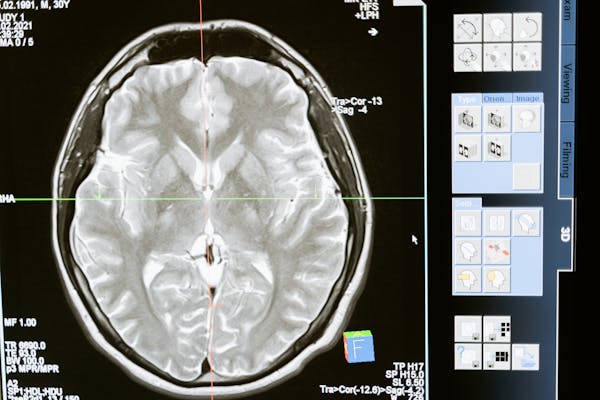Alzheimer’s disease, a progressive neurological disorder, is the leading cause of dementia, affecting millions of people worldwide. It gradually robs individuals of their memory, thinking skills, and ability to perform everyday tasks, eventually leading to death. Given the profound impact of Alzheimer’s on individuals, families, and healthcare systems, the question on everyone’s mind remains: Can Alzheimers disease be cured?

We will explore the current understanding of Alzheimer’s disease, the various therapeutic approaches under investigation, the challenges researchers face, and whether we can realistically expect a cure in the foreseeable future. The keyword “Can Alzheimers disease be cured” will be discussed extensively as we dissect the complexities of this pressing global health concern.
Understanding Alzheimers Disease: Pathophysiology and Symptoms
Before delving into the potential for a cure, it’s essential to understand how Alzheimer’s disease develops and progresses. Alzheimer’s is characterized by the buildup of two abnormal proteins in the brain: beta-amyloid plaques and tau tangles. These proteins interfere with the normal functioning of brain cells (neurons), leading to their death.
The disease typically progresses through several stages, from mild cognitive impairment to severe dementia. Early symptoms include memory loss, confusion, difficulty planning, and trouble with language. As the disease progresses, individuals may lose their ability to communicate, recognize loved ones, and care for themselves. In the final stages, the patient is entirely dependent on caregivers, and complications such as infections or organ failure often lead to death.
Can Alzheimers Disease Be Cured? A Historical Perspective
Efforts to cure Alzheimer’s disease have been ongoing for decades. Early research primarily focused on the role of beta-amyloid plaques, as these were identified as a hallmark of the disease. However, despite significant progress in understanding the molecular mechanisms behind Alzheimer’s, finding a cure has remained elusive.
For many years, the focus was on developing drugs that could clear amyloid plaques from the brain. Unfortunately, numerous clinical trials for amyloid-targeting therapies have failed to demonstrate significant improvement in patients’ cognitive functions. This has led researchers to broaden their focus to other potential therapeutic targets, including tau tangles, neuroinflammation, and synaptic dysfunction.
The question remains: Can Alzheimers disease be cured by addressing these alternative targets, or is the disease too complex for a single therapeutic approach?
Current Treatments and Their Limitations
While a cure for Alzheimer’s disease has yet to be found, there are treatments available that can help manage symptoms and improve the quality of life for patients. These treatments fall into two main categories: medications that temporarily improve cognitive symptoms and non-pharmacological interventions aimed at supporting patients and caregivers.
1. Medications
The most commonly prescribed medications for Alzheimer’s disease are cholinesterase inhibitors (donepezil, rivastigmine, and galantamine) and memantine. These drugs work by increasing levels of certain neurotransmitters in the brain that are involved in memory and cognition. While they can provide modest benefits in the early to moderate stages of the disease, they do not alter the underlying course of Alzheimer’s or prevent its progression.
In recent years, the U.S. Food and Drug Administration (FDA) approved aducanumab (Aduhelm), the first drug designed to target and reduce beta-amyloid plaques. While this approval sparked excitement, it has also been controversial due to questions about the drug’s efficacy and high cost. Some clinical trials showed only limited cognitive improvement, and the long-term benefits remain uncertain. Nonetheless, aducanumab represents a new class of drugs targeting the amyloid pathway, reigniting hope for a potential breakthrough.
2. Non-Pharmacological Interventions
In addition to medications, various non-pharmacological approaches have shown promise in managing Alzheimer’s symptoms. These include cognitive training, physical exercise, music therapy, and social engagement. Studies suggest that engaging in mentally stimulating activities and maintaining social connections can help slow cognitive decline in some individuals. However, while these interventions can improve patients’ quality of life, they are not curative.
Can Alzheimers Disease Be Cured? Exploring Novel Therapeutic Approaches
To answer the question of whether Alzheimer’s disease can be cured, we must look at the numerous therapeutic strategies currently being explored by scientists. These include:
1. Targeting Tau Proteins
While much of the early research on Alzheimer’s focused on beta-amyloid plaques, tau tangles have emerged as another key target for drug development. Tau is a protein that helps stabilize the internal structure of neurons. In Alzheimer’s, tau proteins become abnormally hyperphosphorylated and form tangles inside neurons, disrupting cell function.
Several experimental drugs are now in clinical trials, targeting tau aggregation or modifying its phosphorylation. Some early-phase trials have shown encouraging results in reducing tau pathology, but it remains to be seen whether these therapies can significantly slow or halt cognitive decline. The challenge lies in targeting tau in the right way, at the right time, and in the right population.
2. Immunotherapy
Immunotherapy, which has revolutionized cancer treatment, is also being investigated for Alzheimer’s. This approach involves harnessing the immune system to remove toxic proteins from the brain. Several experimental drugs, including monoclonal antibodies, aim to target and clear beta-amyloid or tau tangles through the immune system.
Some immunotherapy drugs have shown the ability to reduce amyloid burden in the brain, but the question remains whether this translates into clinical improvement for patients. Recent trials, such as those involving anti-amyloid antibodies like lecanemab, have shown promise in reducing cognitive decline, though these findings are still under review. Ongoing research aims to refine these therapies, possibly leading to a more effective treatment and bringing us closer to the question: Can Alzheimers disease be cured through immunotherapy?
3. Neuroinflammation and the Microbiome
Neuroinflammation plays a significant role in Alzheimer’s disease progression. In response to the buildup of amyloid plaques and tau tangles, the brain’s immune cells (microglia) become activated, leading to chronic inflammation. This inflammation may further damage neurons and exacerbate the disease. Some researchers are now focusing on anti-inflammatory treatments, with the hope that reducing neuroinflammation may slow Alzheimer’s progression.
Additionally, emerging research has suggested a link between the gut microbiome and Alzheimer’s disease. The gut-brain axis, a complex communication network between the digestive system and the brain, may influence neuroinflammation and cognitive decline. While this research is still in its infancy, it opens up a new avenue for potential treatments, such as probiotics or dietary interventions, to modify the gut microbiome and reduce Alzheimer’s risk.
4. Gene Therapy and Stem Cells
Gene therapy and stem cell research represent some of the most cutting-edge approaches to treating Alzheimer’s disease. Researchers are investigating whether delivering therapeutic genes to the brain could help prevent or reverse the damage caused by Alzheimer’s-related proteins. For example, some studies are exploring the possibility of increasing the expression of protective genes or silencing harmful ones, such as the ApoE4 gene, which is associated with a higher risk of Alzheimer’s.
Stem cell therapy, on the other hand, aims to replace damaged neurons with new, healthy cells. While still in the experimental stage, stem cell-based therapies could one day regenerate lost brain tissue and restore cognitive function in Alzheimer’s patients. Though these approaches are still years away from being widely available, they represent an exciting frontier in Alzheimer’s research and could eventually answer the question: Can Alzheimers disease be cured through regenerative medicine?
Challenges in Finding a Cure
Despite the progress made in Alzheimer’s research, significant challenges remain in the quest for a cure. These challenges include:
1. Complexity of the Disease
Alzheimer’s is a multifactorial disease, meaning that multiple factors contribute to its onset and progression. These include genetic predisposition, environmental factors, and lifestyle choices. Additionally, Alzheimer’s involves several biological processes, including protein aggregation, neuroinflammation, oxidative stress, and synaptic dysfunction. This complexity makes it difficult to develop a single therapeutic strategy that can effectively target all aspects of the disease.
2. Late Diagnosis
One of the major challenges in treating Alzheimer’s disease is that it is often diagnosed too late, after significant brain damage has already occurred. By the time patients exhibit noticeable cognitive decline, the underlying pathology may have been developing for decades. As a result, many experimental therapies may be ineffective because they are administered too late in the disease process.
Researchers are now focusing on developing biomarkers—biological indicators that can detect Alzheimer’s in its earliest stages. These could include blood tests, cerebrospinal fluid analysis, or advanced brain imaging techniques. Early diagnosis would allow for earlier intervention, potentially improving the effectiveness of treatments and bringing us closer to answering the question: Can Alzheimers disease be cured if detected early enough?
3. Clinical Trial Challenges
Clinical trials for Alzheimer’s disease face several hurdles, including high costs, lengthy timelines, and difficulties in recruiting participants. Alzheimer’s trials often require large sample sizes and long follow-up periods to demonstrate meaningful cognitive improvements. Additionally, the heterogeneity of the disease—meaning that it presents differently in different individuals—makes it challenging to assess the efficacy of treatments.
To address these challenges, researchers are exploring innovative trial designs, such as adaptive trials, which allow for modifications to the study protocol based on interim results. These new approaches could accelerate the pace of drug development and bring us closer to answering the question: Can Alzheimers disease be cured through more efficient clinical trials?
Preventing Alzheimer’s Disease
While the question of whether Alzheimer’s disease can be cured remains unanswered, there is growing evidence that lifestyle changes may help reduce the risk of developing the disease. Several modifiable risk factors have been identified, including:
- Physical activity: Regular exercise has been shown to promote brain health and reduce the risk of cognitive decline.
- Healthy diet: A diet rich in fruits, vegetables, whole grains, and lean proteins, such as the Mediterranean or DASH (Dietary Approaches to Stop Hypertension) diets, has been associated with a lower risk of Alzheimer’s disease. These diets emphasize the consumption of healthy fats, antioxidants, and nutrients that support brain function, such as omega-3 fatty acids, vitamin E, and B vitamins.
- Cognitive engagement: Staying mentally active through activities like reading, puzzles, learning new skills, and social interaction has been shown to strengthen cognitive reserve. This may help the brain compensate for age-related changes and reduce the risk of Alzheimer’s.
- Sleep: Poor sleep, particularly conditions like sleep apnea, has been linked to an increased risk of Alzheimer’s disease. Prioritizing good sleep hygiene and treating sleep disorders may play a role in reducing Alzheimer’s risk.
- Cardiovascular health: Many of the risk factors for cardiovascular disease, such as high blood pressure, high cholesterol, and diabetes, are also associated with an increased risk of Alzheimer’s. Managing these conditions through lifestyle changes and medications can reduce the risk of both heart disease and Alzheimer’s.
- Social connections: Maintaining strong social networks and engaging in regular social activities can contribute to mental well-being and lower the risk of dementia. Isolation and loneliness have been identified as risk factors for cognitive decline, so staying connected with others is important for brain health.
By addressing these lifestyle factors, individuals may be able to reduce their risk of developing Alzheimer’s disease or slow its progression. Although these strategies cannot cure the disease, they offer a proactive approach to brain health that complements ongoing efforts to find more effective treatments.
The Future of Alzheimer’s Research: Can a Cure Be Found?
As research into Alzheimer’s disease progresses, scientists are becoming increasingly optimistic about the potential for developing more effective treatments. While no single treatment has yet emerged as a cure, the ongoing exploration of multiple therapeutic targets—ranging from amyloid plaques to tau tangles, neuroinflammation, and gene therapy—offers hope for a future in which Alzheimer’s disease can be better managed or even cured.
1. Early Detection and Intervention
One of the most promising areas of research involves the early detection of Alzheimer’s disease. As mentioned earlier, by the time Alzheimer’s symptoms appear, significant brain damage has already occurred. However, recent advances in biomarker research may allow for earlier diagnosis and intervention, long before cognitive symptoms become apparent. For example, new blood tests capable of detecting abnormal proteins like amyloid and tau could allow doctors to identify individuals at risk of Alzheimer’s years before the disease manifests.
The earlier Alzheimer’s is detected, the better the chances of developing treatments that can slow or halt its progression. This has led to a shift in focus toward preventative measures and early-stage treatments. For example, clinical trials are now being conducted in individuals with mild cognitive impairment (MCI) or those who are at high risk of Alzheimer’s due to genetic factors. The hope is that intervening early can prevent or significantly delay the onset of full-blown Alzheimer’s disease.
2. Combination Therapies
Given the complexity of Alzheimer’s disease, many experts now believe that a combination of therapies may be needed to achieve significant clinical improvement. Just as cancer treatment often involves a multi-pronged approach (e.g., surgery, chemotherapy, immunotherapy), Alzheimer’s treatment may one day involve a combination of drugs that target different aspects of the disease. For instance, a future treatment regimen might include drugs that reduce amyloid plaques, stabilize tau proteins, reduce neuroinflammation, and protect synaptic connections.
Clinical trials are already exploring this concept by testing the efficacy of combining multiple therapeutic agents. While these trials are still in their early stages, the hope is that by attacking the disease from multiple angles, researchers can achieve better outcomes than with single-drug therapies.
3. Personalized Medicine
Another exciting development in Alzheimer’s research is the growing emphasis on personalized medicine. Not all cases of Alzheimer’s are the same, and the disease can progress differently in different individuals. This variability has made it challenging to develop one-size-fits-all treatments. However, advances in genetic and biomarker research may enable doctors to tailor treatments to each patient’s unique biology.
For example, some individuals carry genetic mutations, such as the APOE ε4 allele, that increase their risk of developing Alzheimer’s. By identifying these genetic risk factors, researchers can develop treatments that are specifically targeted to individuals with certain genetic profiles. Similarly, biomarker research may allow doctors to monitor how patients respond to treatments in real-time, enabling them to adjust treatment plans as needed.
The rise of personalized medicine in Alzheimer’s care holds great promise for improving patient outcomes and addressing the variability in how the disease manifests and progresses in different people.
Can Alzheimers Disease Be Cured? Realistic Expectations
So, can Alzheimers disease be cured? The honest answer is that, at present, there is no cure. However, significant progress is being made in understanding the disease and developing more effective treatments. While it may not be possible to completely reverse Alzheimer’s in its advanced stages, researchers are hopeful that early detection, targeted therapies, and preventative measures could one day make it possible to slow or even halt the disease’s progression.
In the near term, the focus will likely remain on managing symptoms, improving patients’ quality of life, and delaying the onset of severe cognitive decline. However, as research advances, we may eventually reach a point where Alzheimer’s is no longer an inevitable and untreatable condition.
Given the complexity of Alzheimer’s disease, any potential “cure” will likely come in stages. It may first involve preventing or delaying the disease in high-risk individuals through lifestyle changes, early intervention, or prophylactic treatments. Later, more effective disease-modifying therapies could emerge that address the underlying pathology, offering a partial “cure” that slows or stops the disease’s progression. In the distant future, regenerative treatments like gene therapy or stem cell replacement may even make it possible to reverse some of the damage caused by Alzheimer’s.
Conclusion
While we are not yet able to answer the question “Can Alzheimers disease be cured?” with a definitive “yes,” the future of Alzheimer’s research is full of promise. Advances in our understanding of the disease’s molecular mechanisms, combined with new therapeutic strategies and technologies, have brought us closer than ever to finding a cure—or at least dramatically improving the way we treat and prevent the disease.
As scientists continue to explore innovative treatments targeting amyloid plaques, tau tangles, neuroinflammation, and other aspects of Alzheimer’s pathology, there is hope that we will one day be able to manage this devastating disease more effectively. In the meantime, early detection, lifestyle interventions, and symptom management will remain critical components of Alzheimer’s care.
The journey to curing Alzheimer’s disease is far from over, but with ongoing research and collaboration among scientists, healthcare professionals, and patients, we are gradually moving toward a future where Alzheimer’s no longer holds the same grim prognosis it does today. Until then, the answer to the question “Can Alzheimers disease be cured?” remains elusive but full of potential.








